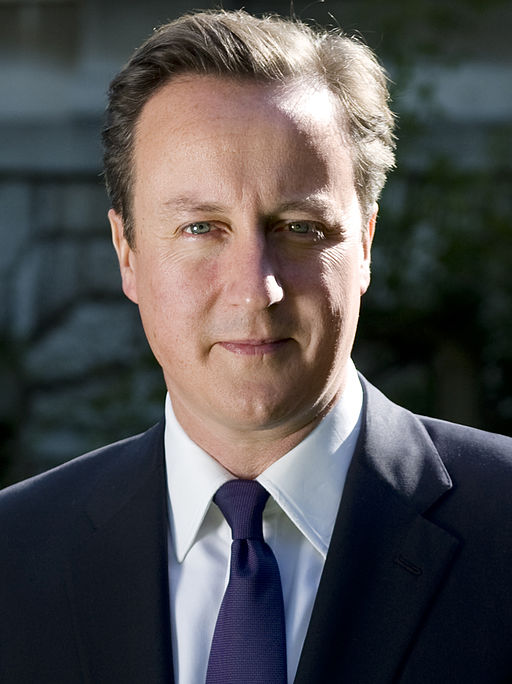Top News Stories –
Brexit fallout, Cameron quits, markets rocked –
Britain has voted to leave the European Union, forcing the resignation of Prime Minister David Cameron and dealing the biggest blow since World War Two to the European project of forging greater unity. Global stock markets plunged on Friday, and the British pound saw its biggest one day drop in history, as results from a referendum defied bookmakers’ odds to show a 52-48 percent victory for the campaign to leave the bloc Britain joined more than 40 years ago. The United Kingdom itself could now break apart, with the leader of Scotland, where nearly two-thirds of voters wanted to stay in the EU, saying a new referendum on independence from the rest of Britain was “highly likely”. In an emotional speech on Friday, UK Prime Minister Cameron, who led the campaign to remain in Europe to defeat, after promising the referendum in 2013, said he would leave office by October. Lawmakers from the opposition Labour Party launched a no-confidence motion to topple their leader, leftist Jeremy Corbyn, accused by opponents in the party of campaigning tepidly for its Remain stance. The British pound fell as much as 10 percent against the U.S. dollar on Friday to levels last seen in 1985 on fears the decision could hit investment in the world’s fifth-largest economy, threaten London’s role as a global financial capital, and usher in months of political uncertainty. The euro slid 2.0 percent against the U.S. dollar. [Reuters] In February Cameron secured a deal with the EU to try to avoid an exit vote.
 David Cameron
David Cameron
Video of the Day –
Brexit: UK prime minister David Cameron addresses British voters on leaving the EU
Other News Stories –
- Armed conflicts and attacks
- Moro conflict
- Seven Indonesian sailors are kidnapped off the coast of Sulu near Mindanao in the southern Philippines raising terrorism fears. (The New York Times), (Philippine Daily Inquirer)
- War in North-West Pakistan
- At least three people are killed and 32 more are wounded by a bomb in Quetta. (Radio Free Europe/Radio Liberty)
- Business and economy
- Brexit impact
- The British pound and FTSE 100 Index for the London Stock Exchange both fall in trading as early results from the United Kingdom European Union membership referendum show a stronger than expected result for Leave. (Bloomberg), (The Telegraph)
- Asian markets drop as Leave campaign continues to lead in the Brexit referendum. (New York Times)
- U.S. futures markets fall by 650 points as the UK votes to leave. (CNBC)
- The Dow Jones ends the day down 611.21 points to 17,399.86, marking the biggest drop in 10 months. (NBC)(CNBC) (Reuters)
- Disasters and accidents
- West Virginia police report powerful flash floods last night killed at least twenty-three people and swept away a toddler from Ravenswood, West Virginia. Up to 10 inches of rain fell in White Sulphur Springs in the southern part of the state. Almost 500,000 customers are without power including thousands in Virginia. (NBC News), (NBC News), (Yahoo News)
- The U.S. Geological Survey reports a 5.5 magnitude earthquake in north Chile, 116 miles (187 km) from the city of Copiapó at a depth of 80.8 miles (130 km), in the country’s copper mining area. Chile is the world’s largest producer of copper. (Reuters) (USGS)
- International relations
- Pope Francis, in his first speech upon arrival at the presidential palace of Serzh Sargsyan in the Armenian capital Yerevan, denounces the planned genocide of Armenians by Ottoman-era Turks a century ago, though the word “genocide” was not included in his prepared speech. (AP) (NPR)
- Brexit impact
- Spain’s Foreign Minister José García-Margallo y Marfil says Spain will seek to jointly govern Gibraltar with Britain. Gibraltar, which is at the southern end of the Iberian peninsula bordering Spain, overwhelmingly voted in favor of Britain remaining in the EU. (Reuters)
- Indonesia–Philippines relations
- Indonesia restricts the exports of coal to the Philippines after the abduction of Indonesian sailors by the Abu Sayyaf. (Reuters)
- Law and crime
- Volkswagen emissions scandal
- South Korea issues an arrest warrant for a Korean-based Volkswagen AG executive in relation to the emissions scandal which is the first warrant issued for a Volkswagen executive anywhere in the world.(Reuters via Daily Mail)
- Crime in the Philippines
- More than 50 people accused of dealing in illegal drugs have been murdered in the Philippines within a month after incoming president Rodrigo Duterte called for more extrajudicial killings against suspected criminals. (Rappler)
- Duterte wants to return capital punishment in the country so he can hang people. (Rappler)
- Politics and elections
- United Kingdom European Union membership referendum, 2016
- The United Kingdom votes, 52% to 48%, to leave the European Union. Prime Minister David Cameron, who called the referendum three years ago, announces his resignation indicating he will leave office by October. (BBC) (BBC²) (Newsweek) (Reuters)
- The price of nickel is expected to skyrocket after the incoming Philippine government appoints an anti-mining bureaucrat Gina Lopez to the national cabinet. The Philippines is the biggest exporter of nickel toChina. (South China Morning Post)
News from Wikipedia – please support this valuable resource
